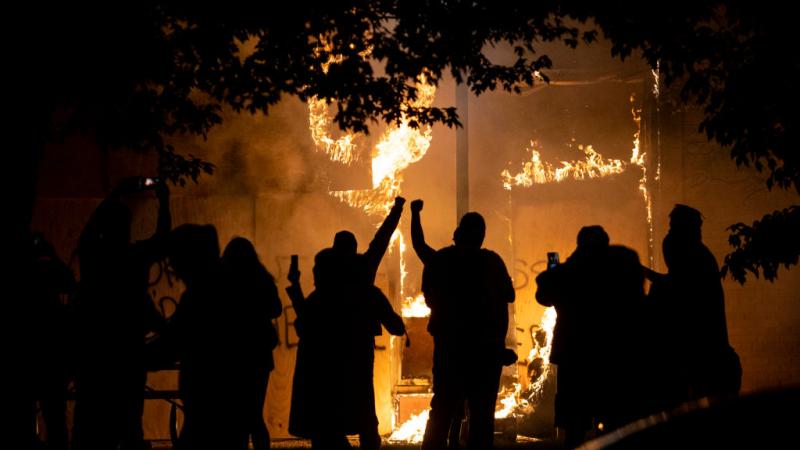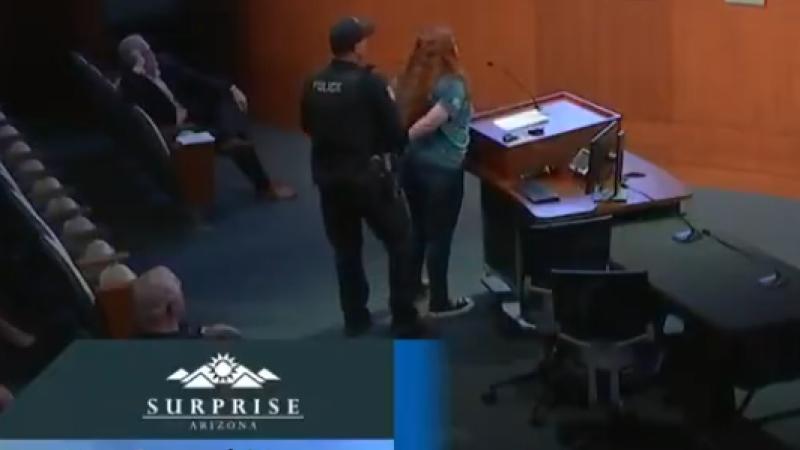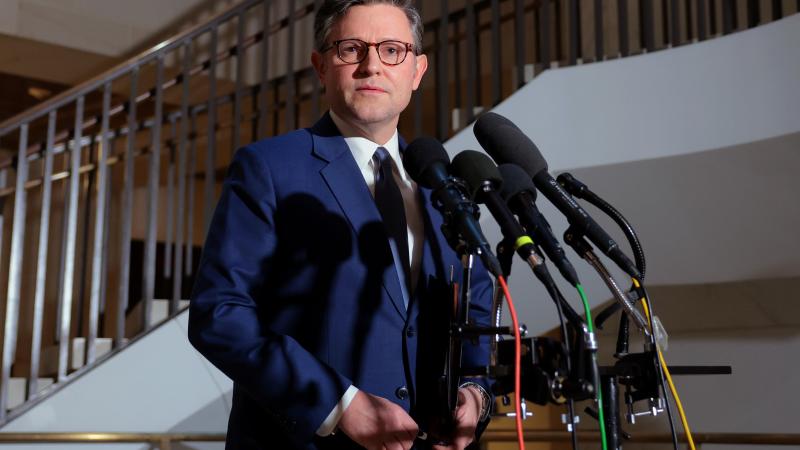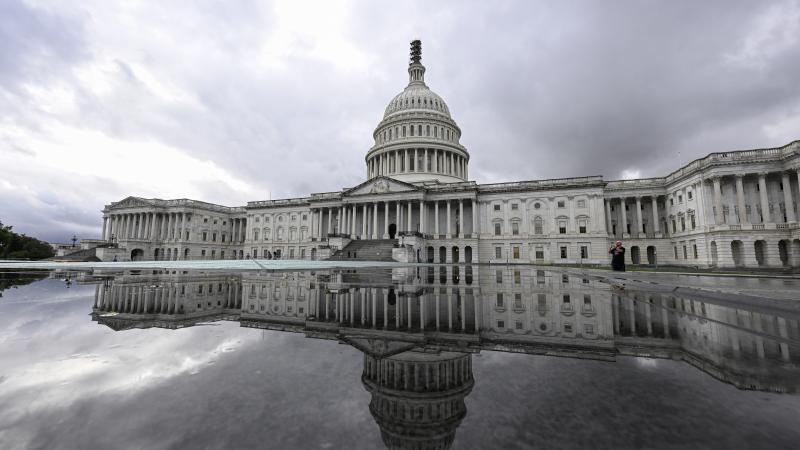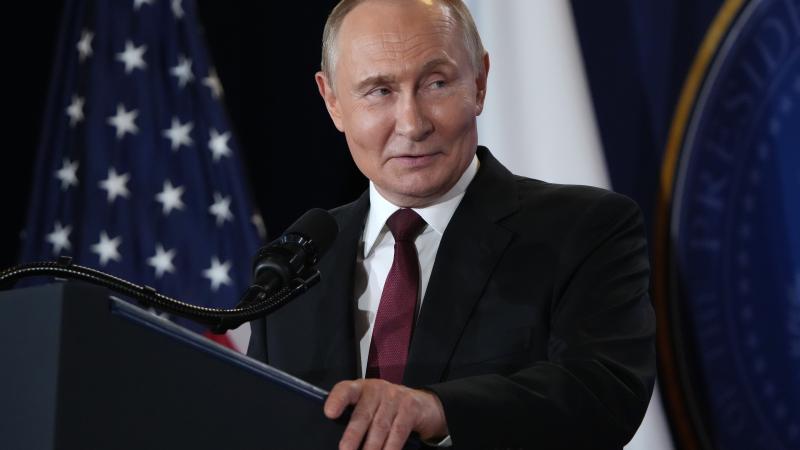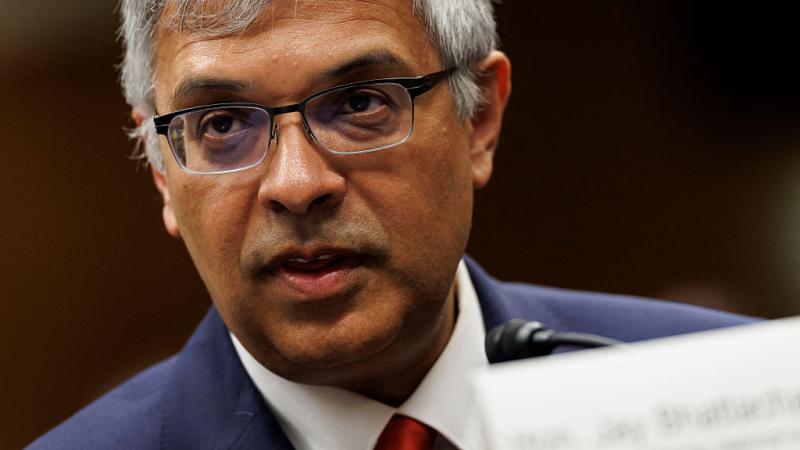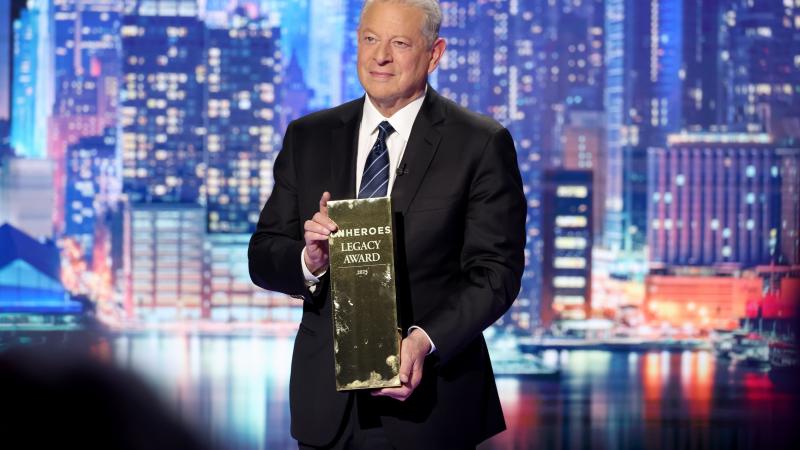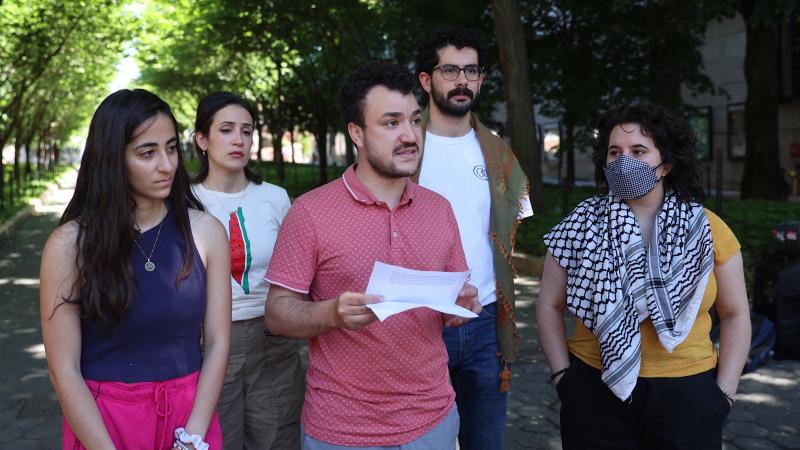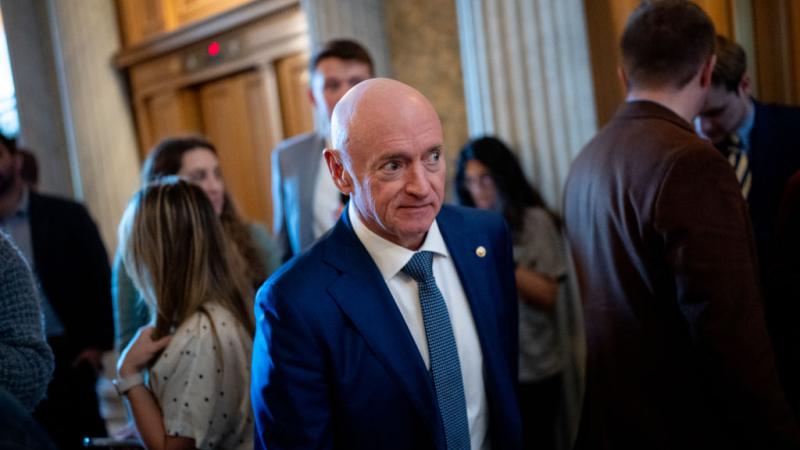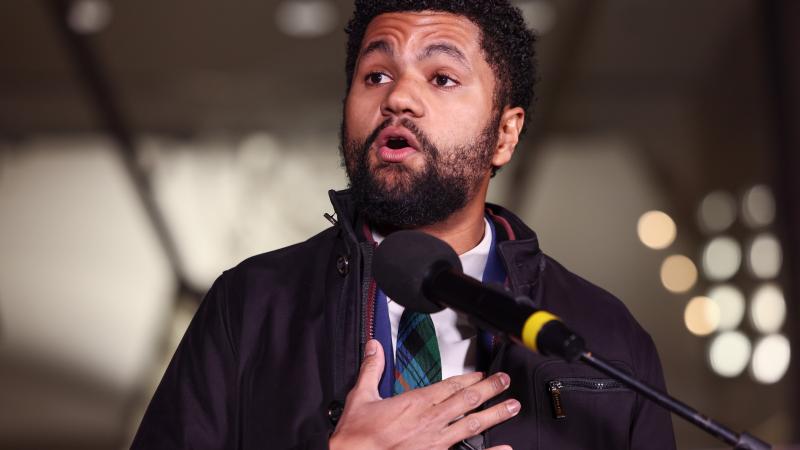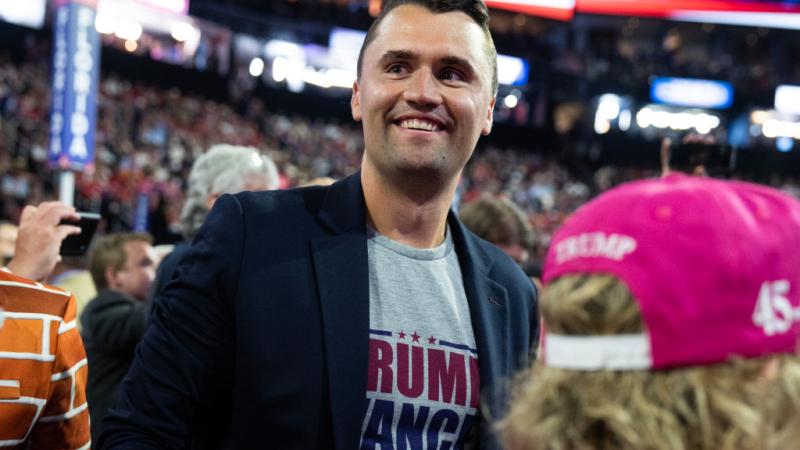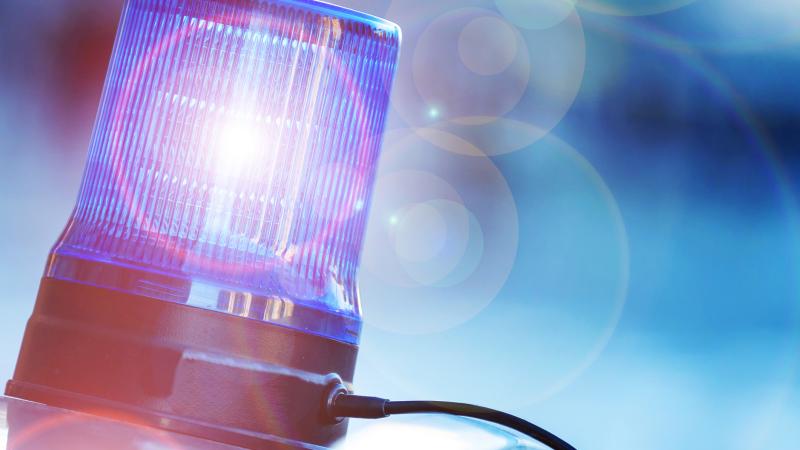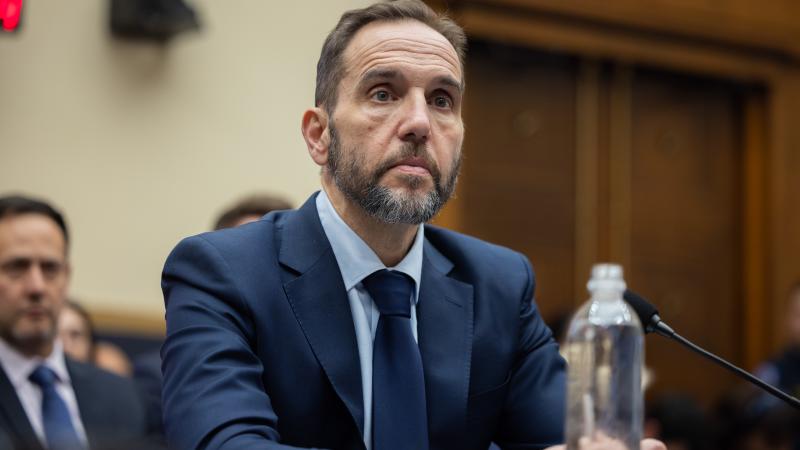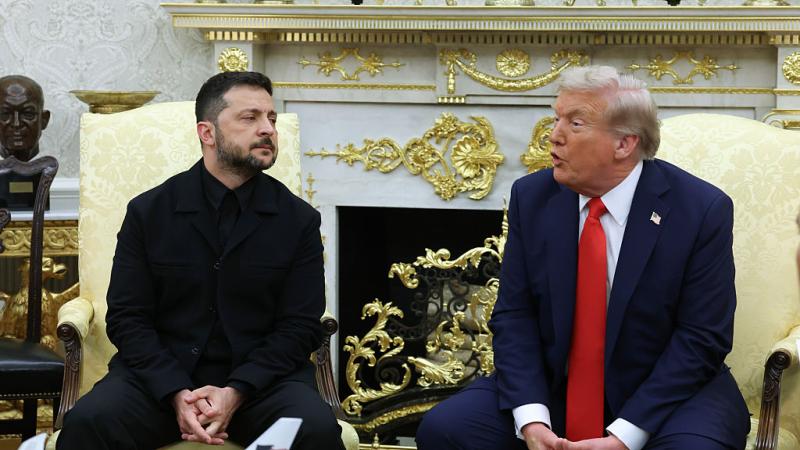'All they did was wear wristbands!' Judges question school district's ban on 'XX' at girls' games
Most Democratic federal appeals court doesn't want gender identity protests to escalate at school games, but panel isn't impressed by district's explanation for censoring parents without any plausible disruption.
Massachusetts, Maine, New Hampshire and Rhode Island risk becoming hotbeds of censorship by school districts if the 1st U.S. Circuit Court of Appeals construes perceived offense as harassment. School districts risk massive liability for harassment if it does not.
Lawyers for censored parents and New Hampshire's Bow School District laid out alternate visions of legal calamity to a three-judge panel of the Boston-based court at a hearing Wednesday on the constitutionality of Bow banning "XX" wristbands, a silent form of advocacy for female-only sports, from school athletic events.
Parents and a grandparent sued the district more than a year ago, after it threatened to arrest them at a Sept. 17, 2024, girls' soccer game featuring a male player for not removing their wristbands, which refer to the female chromosome pair, and issued no-trespass orders. Bow set up a "protest zone" for critics of male inclusion soon after the suit was filed.
Their passive protest shortly followed a federal judge blocking The Free State's law that "prohibits biological males from participating in female athletics," an injunction that applied only to the male athletes who sued, not every male who identifies as a girl.
A district judge nominated by President George H.W. Bush rejected a preliminary injunction against Bow this spring, claiming the wristbands send a "demeaning and harassing" message to males who identify as girls and participate in girls' sports.
Wednesday's oral argument suggested the panel might buck the 1st Circuit's reputation as a rubber stamp for schools on gender identity, frequently leaving Bow School District lawyer Jonathan Shirley seeming to stumble for answers that would satisfy their questions.
Another panel upheld a school district's ban on a student wearing an "Only Two Genders" shirt because it "assertedly demeans characteristics of personal identity" even if done "passively, silently, and without mentioning any specific students." Supreme Court Justices Samuel Alito and Clarence Thomas blasted their colleagues for not accepting that case.
One of Wednesday's panel members, Judge Julie Rikelman, served on another that upheld a school district's practice of hiding students' identification as the opposite sex from their parents. President Biden nominated Rikelman, who argued to preserve federal abortion rights in Dobbs, a month after SCOTUS ruled against her abortion-clinic client.
The 1st Circuit was the only federal appeals court until recently without any active GOP-nominated judges, which Reuters reported has made its lower courts "magnets for lawsuits challenging Trump's agenda by Democratic state attorneys general and advocacy groups." The Senate confirmed President Trump nominee Joshua Dunlap on Tuesday.
Wednesday's panel included two judges with senior status, meaning they are allowed to handle a reduced caseload compared to active judges: Jeffrey Howard, nominated by President George W. Bush, and Sandra Lynch, by President Clinton.
They seesawed between concerns about encouraging spectators to escalate their advocacy for or against sex-based sports, causing unambiguous disruptions at games, and giving administrators carte blanche to censor any message they dislike in the name of preempting disruption or protecting students.
Lynch repeatedly reminded district lawyer Shirley the disruption his client feared never materialized and questioned his argument that courts must defer "all the time" to the "predictive judgments" of districts about disruptions. "What's your next argument, that people can make mistakes like that?" she asked.
When Shirley insisted the plaintiffs caused the disruption by refusing to remove the wristbands when confronted by officials, Lynch retorted that if the directive amounts to unconstitutional viewpoint discrimination, "then you have a problem."
Institute for Free Speech lawyer Endel Kolde, representing the plaintiffs, reminded the judges several times of the limited relief they sought: to silently express "sociopolitical passive commentary" that girls' sports should be reserved for girls, a view he said most Americans hold, given that Bow has an "established history" of allowing the opposite view.
"We're not asking to hijack the school's athletic events to turn them into political debates," Kolde told Rikelman when she asked how to define disruption, such as shouting. "I've seen a lot of things shouted" at games, but most people must deem it disruptive to count, he said.
Asserted fear of counterprotesters would become "a get-out-of-jail-free card"
Superintendent Marcy Kelley testified that Bow would prohibit XX wristbands under any circumstances, not just when male players were in girls' games or transgender spectators were present, and Shirley reiterated the viewpoint-based ban when he compared the biology-based message to "poison," Kolde emphasized to the panel.
It must reject District Judge Steven McAuliffe's claim that officials had an "affirmative duty to censor" a message because it supposedly disparages a class of people, or else officials will characterize "individual offense" as disparagement as an excuse to censor, he said.
The evidence of disruption by adults in a limited public forum must be greater than that of students in the school setting, or else "we were concerned about counterprotesters" will become "a get-out-of-jail-free card for viewpoint discrimination," Kolde said when Rikelman noted the deference standard from the "Only Two Genders" ruling.
Lynch questioned his "comparator" – that Bow tolerated LGBTQ pride symbols at games – as evidence of viewpoint discrimination, prompting Kolde to agree that people can be "both supportive of gay rights and opposed to transgender athletes playing," as Lynch put it. He emphasized they were the transgender-specific "Progress Pride flag," however.
A school that allows Black Lives Matter shirts at games cannot exclude Ku Klux Klan symbols, "unpleasant and unkind" as they are, Kolde answered a Lynch hypothetical, while distinguishing the "strong social stigma" of KKK symbols from the mainstream XX wristband.
Kolde, who said he would represent pro-transgender parents if their passive symbols were banned, repeatedly corrected the judges on the timeline of events. Though officials knew about the wristbands before the game, no one objected to them on the field or in the stands before officials ordered them removed.
The referee was "sort of primed" by athletic director Michael Desilets to look for protests against the male player's inclusion when he halted the game, and the "progressive parents" didn't object to the wristbands until Desilets ordered them removed, Kolde said. Lynch later corrected Shirley on the timeline, noting the plaintiffs only donned the wristbands during the second half.
What really set off officials was plaintiff Kyle Fellers calling Desilets a "coward" for not defending girls' sports, and it's every American's right to criticize public officials without facing First Amendment retaliation, Kolde told Howard.
He tried to assure Lynch and particularly Rikelman, who noted the plaintiffs weren't challenging the disruption policy on its face, that schools wouldn't respond to a ruling for the plaintiffs by simply prohibiting all plausibly political expression during games. Schools can legally act when true disruption results, but Judge McAuliffe minimized the facts, Kolde said.
The "reasonable apprehension that much more was planned" was wrong
District lawyer Shirley struggled throughout his argument to give convincing answers to the judges, especially Lynch, who spoke far more than her colleagues Wednesday.
While the district had a "reasonable apprehension that much more was planned" at the 2024 game to protest male inclusion, as Shirley said, the district intervened without a disruption, Lynch said. "You're missing the point," she said when Shirley said officials wanted to "monitor the integrity of an athletic event."
The parents had already told Superintendent Kelley they opposed the male player's participation for fear of their daughters' safety, and Kelley responded that the court injunction required the male's inclusion, so "all they did was wear wristbands!" Lynch exclaimed.
"We're like ships passing in the night," the judge sighed, noting that Kelley said the wristbands were "inherently injurious." Shirley pivoted, claiming the ban was a viewpoint-neutral prohibition on the message that spectators "don't want you on that field," regardless of the reason, but Lynch rebutted that the male player already knew they didn't want a male on the field.
Asked about wearing an armband to protest an "illegal transfer" on the opposing team, Shirley told Howard no one should be allowed to object if a player has been given permission to play.
When he said it would be fine to wear a wristband supporting an excluded player's right to play, Howard made Shirley fumble by noting that the message would exclude a rightful player.
The XX wristband has a "very specific twinned message" of support for "female-born players" and opposition to others, the latter being harassment under Bow policies, Shirley said.
Under the SCOTUS Davis standard for severe and pervasive harassment, Bow could be legally liable for not squelching such harassment early on, he claimed. The plaintiffs would put it in a "seemingly impossible position" of allowing problematic conduct right up until it becomes pervasive, Shirley said.
Judge Lynch questioned Shirley's invocation of a precedent she helped set as support for his position. "On these facts there was no harm," contrary to the evidence of pervasive harassment in Wadsworth, she said: potential sexual abuse and impropriety by a principal.
Students have the right to remain "unmolested" by adults shouting at them, Shirley responded, appearing to grope for an argument that would stick. Imagine a basketball arena "stuffed to the gills with these wristbands" and protest signs and claim it's not harassment, he said.
The school district can't get away from its argument that "just that one view, the XX chromosomes, is automatically always harassment," Kolde said in his rebuttal. It's not limiting its intervention to "noisy counterprotesters" but rather people "quietly" wearing wristbands, which is "democracy in action."
Bow should have "modeled tolerance and restraint" in a pluralistic society for its students, Kolde said. "We all know that if they had worn Pride flag wristbands, we wouldn't be here today."
The Facts Inside Our Reporter's Notebook
Links
- hearing Wednesday
- Parents and a grandparent sued the district
- Bow set up a "protest zone"
- wristbands send a "demeaning and harassing" message
- upheld a school district's ban on a student
- "assertedly demeans characteristics of personal identity"
- Samuel Alito and Clarence Thomas blasted their colleagues
- upheld a school district's practice of hiding
- argued to preserve federal abortion rights in Dobbs
- Reuters reported
- transgender-specific "Progress Pride flag,
- Wadsworth
